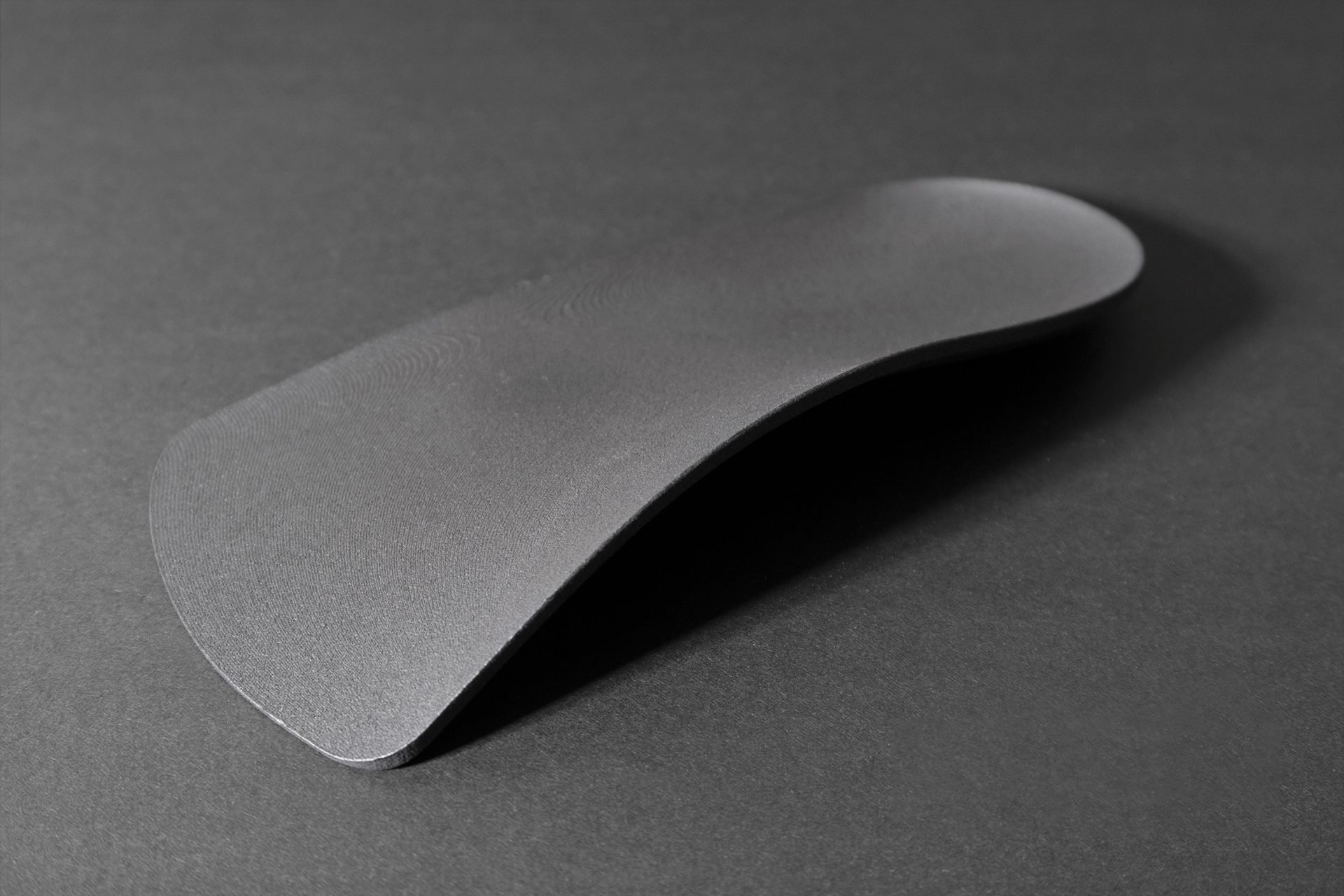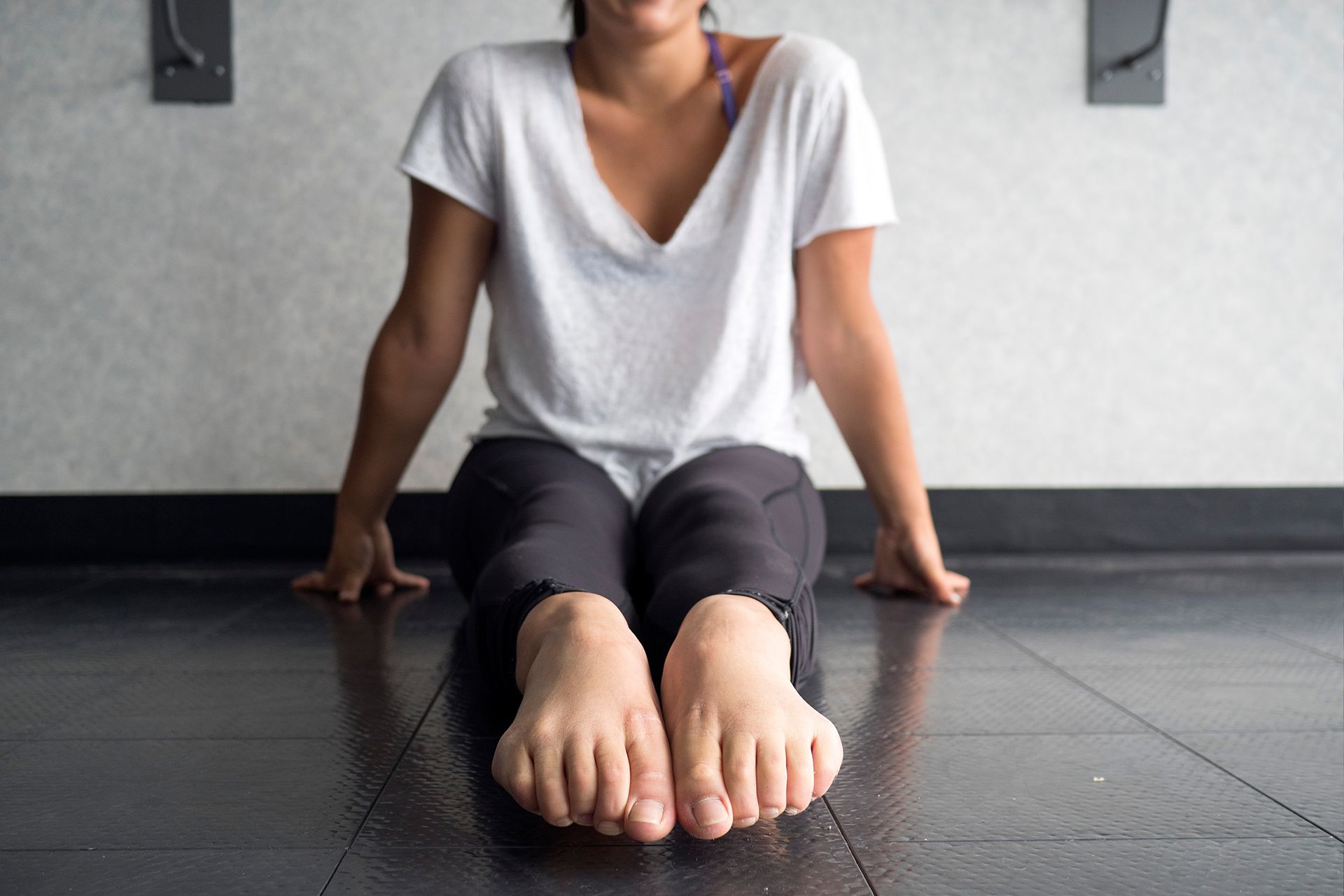You have been preparing for months, running every week, sometimes every day, building strength and endurance to get that best timing. You’re ready to face the marathon but have noticed a slight pain in your foot. The one thing you don’t want to do is stop training. How can you get your best timing otherwise?
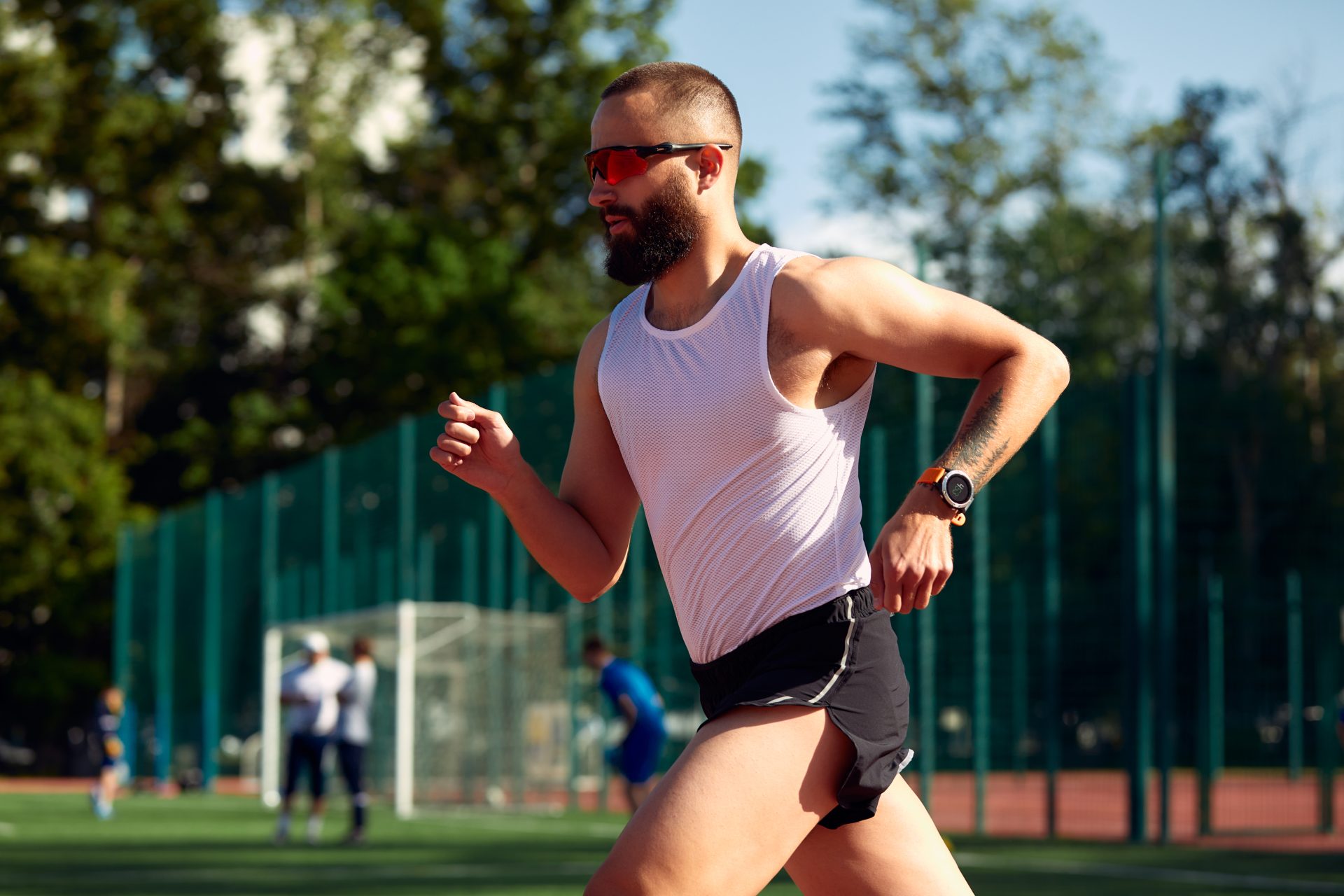
It could be nothing—a little ache that goes away quickly—or it could indicate something serious. With a podiatrist’s assessment and a 1,000-sensor gait analysis treadmill at your feet, your marathon foot pain can be managed safely, helping you stay on track for your running goals.
Uncovering the common culprits behind marathon foot pain and remedies to alleviate your pain might be just a few simple steps away …
Top 9 Reasons Why You’re Experiencing Marathon Foot Pain
Your foot pain may indicate several different conditions, depending on the type of pain and location of the injury. Here are a range of potential causes of foot pain during marathon training.
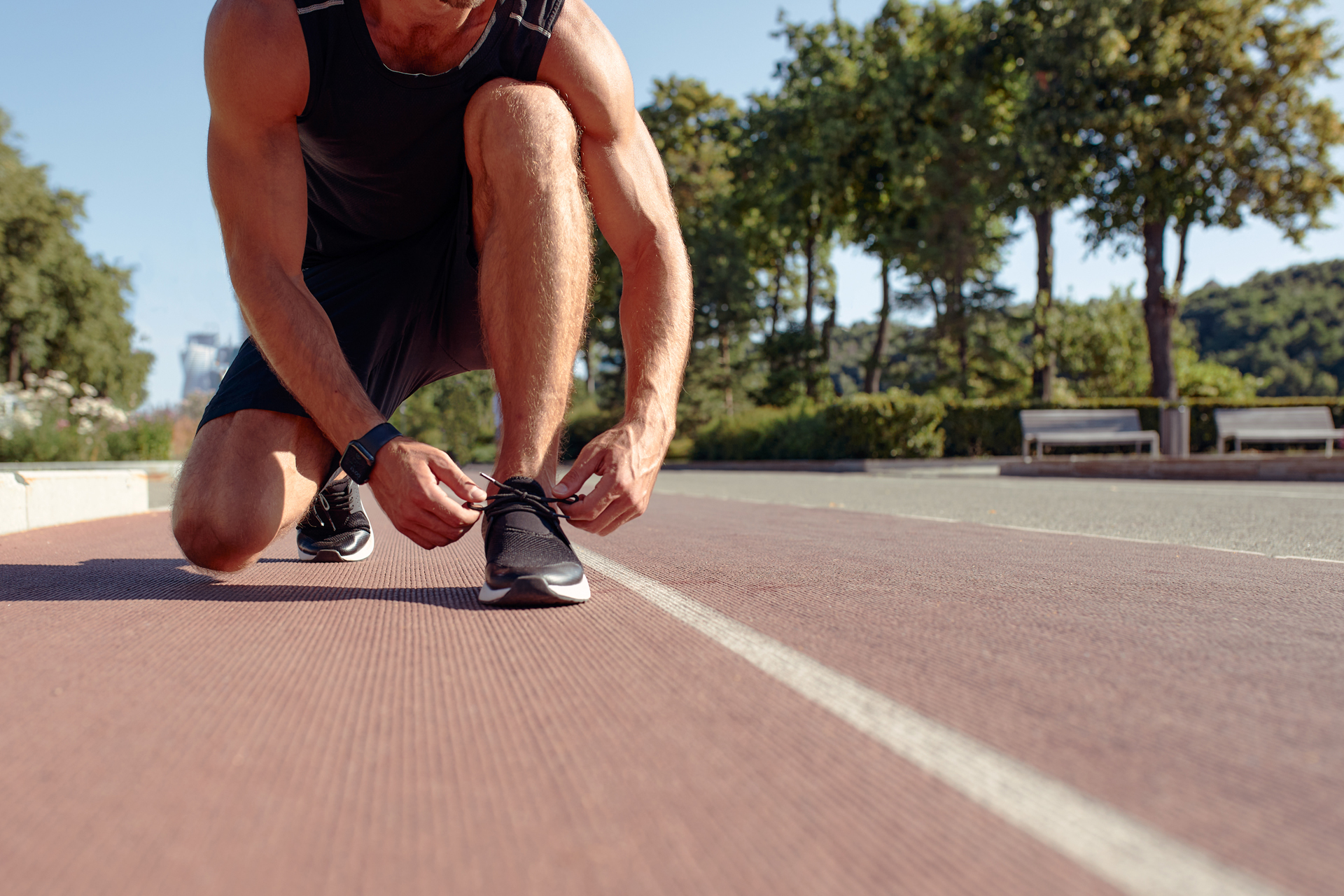
1. Plantar Fasciosis
A condition characterised by chronic degeneration of the plantar fascia, the thick band of tissue that runs across the bottom of your foot and connects your heel bone to your toes. Unlike plantar fasciitis, which implies inflammation of the plantar fascia, plantar fasciosis refers to a more long-term degenerative process without significant inflammation. This condition results from repetitive stress and inadequate healing of the plantar fascia, leading to deterioration and thickening of the tissue.
2. Plantar Fasciitis
An inflammation of the plantar fascia, a band of tissue that runs along the bottom of the foot, is often caused by overuse, improper footwear, or biomechanical issues. Pain is typically felt along the bottom of the foot, particularly around the heel area where the plantar fascia attaches to the heel bone.
3. Stress Fractures
Tiny cracks in the bones of the foot are typically caused by repetitive stress from activities like running, especially when training intensity or mileage increases too quickly. Pain can occur in various areas of the foot, often localised to specific bones such as the metatarsals or the navicular bone, depending on where the stress fracture occurs.
4. Achilles Tendinitis
Inflammation of the Achilles tendon, which connects the calf muscles to the heel bone, often results from overuse or tight calf muscles. Pain is usually felt in the back of the heel or along the Achilles tendon, which runs from the calf muscles down to the heel bone.
5. Friction Blisters
Fluid-filled sacs on the skin are caused by friction or pressure. They frequently occur on the feet during long-distance running due to excessive rubbing against socks or shoes. Pain and discomfort can occur anywhere on the foot where friction or pressure causes a blister, commonly on the toes, heels, or sides of the foot.
6. Runner’s Toe
Runner’s toe, also known as a black toenail, frequently occurs among runners and athletes who engage in long-distance running or sports that involve significant foot impact, characterised by a dark discolouration under the toenail caused by trauma or repeated pressure that leads to bleeding and bruising beneath the nail plate.
7. Bunions
Bony bumps that form on the joint at the base of the big toe, potentially causing pain and discomfort during running, exacerbated by factors like improper footwear, foot mechanics, or genetic predisposition. Pain and discomfort are usually felt at the base of the big toe joint, where the bunion forms, and may extend to the surrounding areas of the foot.
8. Metatarsalgia
Pain and inflammation in the ball of the foot are often caused by increased pressure on the metatarsal bones during running, possibly due to improper footwear, foot structure issues, or biomechanical abnormalities. Pain is concentrated in the ball of the foot, usually beneath the heads of the metatarsal bones.
9. Morton’s Neuroma
Thickening of the tissue around the nerves leading to the toes results in pain, numbness, or tingling sensations in the ball of the foot or between the toes. These sensations are commonly exacerbated by running or wearing tight shoes. Pain, numbness, or tingling sensations are typically felt in the ball of the foot or between the toes, often occurring in the area of the third and fourth toes.
10. Tarsal Tunnel Syndrome
Compression or irritation of the tibial nerve, as it passes through the tarsal tunnel (a narrow space in the ankle), leads to pain, tingling, or numbness in the foot, often exacerbated by repetitive motion such as running. Pain, tingling, or numbness may be felt along the inside of the ankle or on the sole, corresponding to the path of the tibial nerve through the tarsal tunnel.
What if you’re experiencing foot pain after a half marathon? How can you prevent foot pain during a marathon?
Foot pain during marathon training isn’t caused by just one thing; it’s usually a mix of reasons. Wearing the wrong shoes can be a big problem for you. If your shoes don’t fit right or don’t support your feet properly, you could end up with sore feet. Shoes are mass-produced with labels promising “custom comfort” and “perfect fit,” creating the illusion they’re tailored for individual feet. Yet, they’re designed for the general population, not the unique contours of your sole. It’s crucial to pick shoes that suit your foot shape and how you run.

Training too hard without enough rest can also hurt your feet. Overuse injuries, which result from intensive training, are another common cause of foot pain. Conditions like plantar fasciitis and stress fractures are common if you overdo it. That’s why having a good balance of training days and recovery is essential.
How your foot naturally moves, called biomechanics, can also cause foot pain. Some people’s feet roll in too much or not enough when they run, which can stress certain parts of the foot. Running the wrong way can add to foot stress, too. Changing how you run, getting the right shoes for you, or using special inserts can ensure you do it efficiently and help avoid pain.
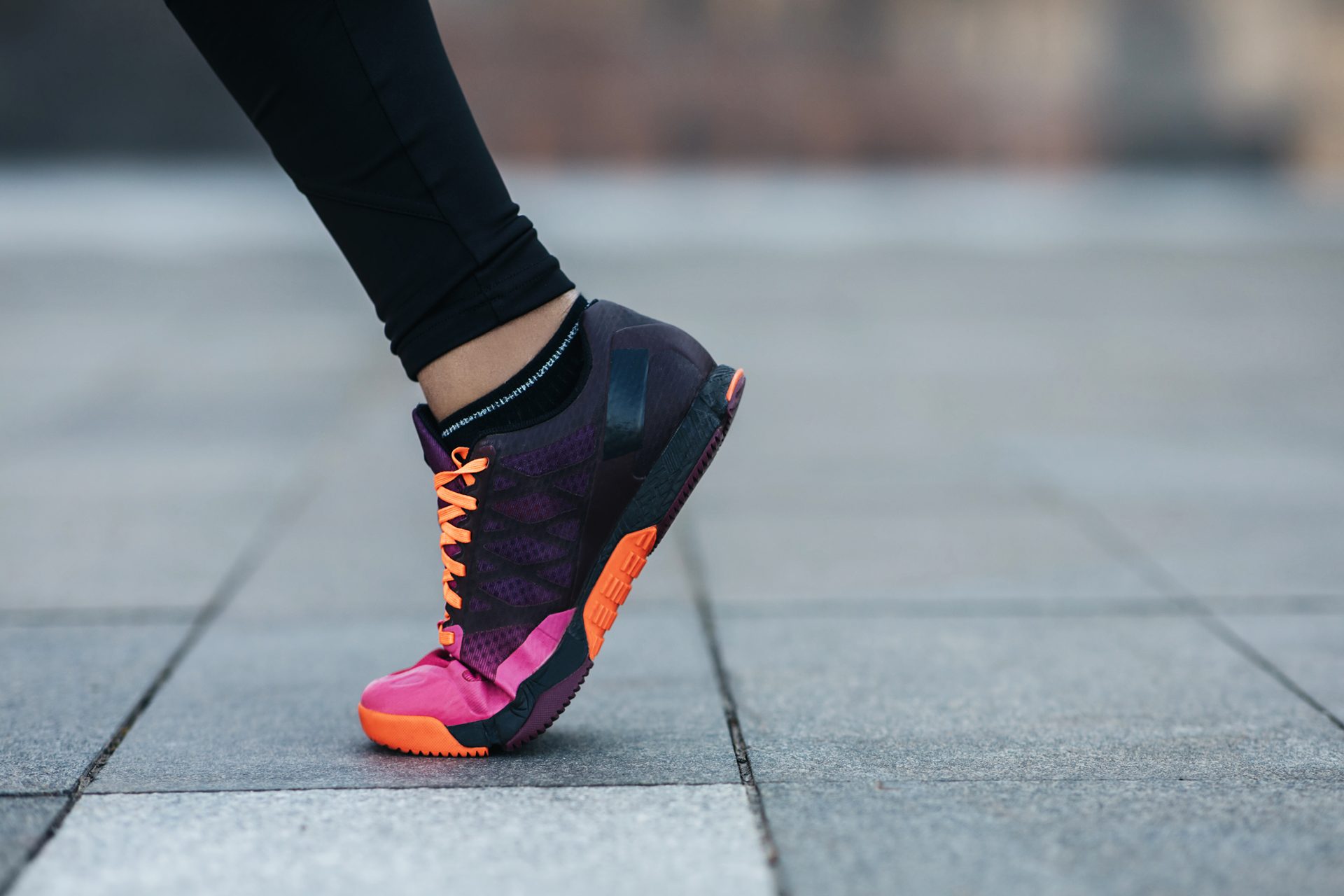
Finally, not caring for your feet can lead to pain during training. Not stretching, keeping your feet clean, or ignoring minor pains can become bigger problems. Proper foot care is key to keeping your feet pain-free during training.
Choosing the right shoes, training smartly, fixing biomechanical issues, running properly, and good foot care can all help prevent foot pain when training for a marathon.
Managing Your Foot Pain while Training for a Marathon
You can relieve foot pain by addressing the issues above as a runner. Sometimes, however, you may already have an injury developing, and a self-symptom diagnosis is just like putting a Band-Aid over a gaping wound. That’s where a sports podiatrist can come in and give you that additional support. At The Foot Practice, our clinic has advanced technology and trained expertise to help you with foot pain.

Our new RehaWalk® Gait System is the first-line system to leap forward in helping manage diverse marathon foot pain conditions.
With 1,000-foot sensors under your feet and 3D infrared gait analysis to provide detailed insights into your biomechanics, our team pinpoints the biomechanical abnormalities that are genuinely contributing to why you’re experiencing foot pain while training for a marathon.
We can tell if your shoes are right for your movement patterns and prescribe custom interventions, such as custom insoles or gait retraining techniques, to correct imbalances and reduce strain on the feet. If you’re experiencing Achilles tendon pain or plantar fasciitis, we prescribe Shockwave Therapy to target healing by inducing noninvasive micro-traumas during training to enhance blood circulation.
These are some interventions The Foot Practice team can help with your marathon training.
So whether you’re preparing for a marathon next year amidst your training routine now or gearing up for one coming soon, consider scheduling an assessment at The Foot Practice to learn how to manage your foot pain during your marathon training journey.




